Nick Wilgus's Blog, page 3
September 6, 2016
Jacob Wetterling and the Problem of Evil
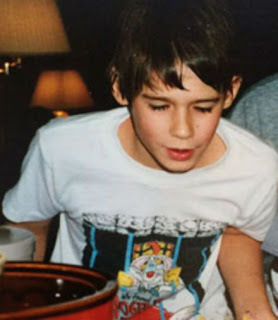
On October 22, 1989, an eleven-year-old boy named Jacob Wetterling was abducted at gunpoint and taken to a rock quarry where he was raped and murdered. For twenty-seven years, his death was a mystery. This week, his murderer finally confessed to the crime.
It's the sort of thing that hurts your heart.
Confronted with such terrible ugliness and brutality, we turn to religion for answers, and we ask the following questions:
Why is there evil in the world? What purpose does it serve? Where does it come from? If God is omnipotent - if he can do anything he chooses - why does he sit back in silence and allow such horrific things to happen to the most innocent and vulnerable among us? If God loves us, why does he allow such terrible things to happen to us?
When we try to answer such questions, we encounter what theologians call the problem of evil. Each believer, no matter the denomination or creed or religious tradition, will encounter this thorny problem - and it's the one problem that uniquely demonstrates the poverty of our religious ideas.
Fact is, religion has no good answers. We go round and round in circles.
We are told that God is omnipotent and almighty and can do as he pleases. So we are forced to ask: Why doesn't he intervene when a child falls into the clutches of a monster? How can he sit back in silence and do nothing? How can someone who supposedly loves you be so indifferent to your suffering?
We are told:
He allows such things so that a greater good might ariseHe allows such things so that a greater evil will not occurHe has given mankind free will and must respect our free will, even when we use it to do evil, terrible thingsOr, we fall back on the old standard: God's ways are not our ways. We are too small and too limited to understand his purposes and intentions. These, of course, are not answers at all.
Those of us who have experienced tragic things in our lives inevitably find ourselves one day pondering the problem of evil. We ask God: Why did you allow this to happen? Why me? What did I do to deserve this? Why didn't you help me? I thought you loved me ... if you loved me, you would have helped me.
God, of course, does not respond.
Well-meaning souls assure us that "God's ways are not our ways" or that God always brings "something good" out of the evil we experience.
Any serious believer will eventually explore this problem, as I have and so many others have. Numerous books and papers have been written about it.
Explore the Bible, if you want. Dig into the Quran, or the Gita, or the Vedas, or any sacred scripture. You will not find a satisfactory answer.
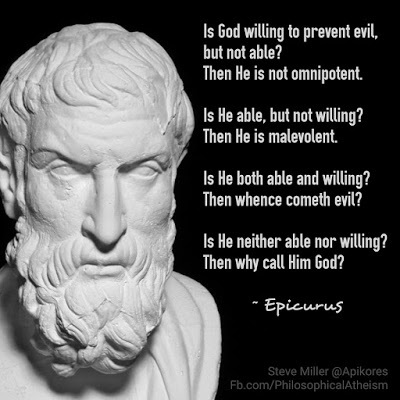
There are times, though, when we need answers, when silence and sophistry are simply not good enough.
The death of a child at the hands of a monster is one such time.
Yet religion cannot comfort us. It cannot explain what happened to this little boy. It can conjecture and speculate and guess, but it can't answer the questions we ask. No amount of theological hair-splitting will comfort this boy's parents, his family, his friends. No amount of well-intentioned claptrap can hide the fact that religion has no genuine answers.
All it can do is what it does best, which is offer hope when there is no hope. The religious person will say Jacob Wetterling is in a better place. We certainly hope so. The religious person will say that his murderer will be judged by God and most likely spend eternity in hell. We certainly hope so.
But ... whether those things are true is anyone's guess.
At the end of the day, the problem of evil confronts us with the fact that God, although he is all powerful, chooses silence and indifference no matter how horrific the crime or how innocent the victim. God sits back, allows it to happen, updates his scorecard. Apparently he has his reasons, Needless to say, these are not the actions of what we understand to be a loving person.
If God does not answer the cries of a child being raped and murdered, what cries will he answer? If he is not moved by such a horrific scene, what will move him, if anything at all?
Jacob Wetterling is only one child, but there are many Jacobs all over the world, so many boys and girls who, even today, are being raped and murdered.
Why?
Perhaps the answer has less to do with God and more with us and what we allow. Perhaps it is our own silence and indifference that allows monsters to roam so freely. Perhaps, at the end of the day, these children are victims of the world we created, a world filled with violence, hatred, endless self-seeking and self-absorption, and more weapons than we know what to do with.
Perhaps someday we'll learn how to create a world where life truly is sacred.
Published on September 06, 2016 18:04
July 4, 2016
What's Up with Mississippi?

In the realms of chutzpah, it was a bona fide keeper. Mississippi Speaker of the House Philip Gunn said he was disappointed that a judge had ruled against House Bill 1523, which would have allowed discrimination against LGBT folks under the guise of religious liberty. Federal judge Carlton Reeves put a stay on the bill, which was to take effect on July 1, 2016.
Gunn said, "We felt like it was a good bill, protecting religious beliefs and the rights of LGBT community."
He did not explain how giving religious people a free pass to discriminate against the gay community would "protect the rights of LGBT community." He also did not explain his aversion to the use of a definite article.
Perhaps he was trying to one-up his boss, Governor Phil Bryant, who received the Samuel Adams Religious Freedom Award from the Family Research Council (categorized as a hate group by the Southern Poverty Law Center), for signing the bill in the first place. During the award ceremony, held in Washington, D.C., Bryant said, "They don't know that Christians have been persecuted throughout the ages. They don't know that if it takes crucifixion, we will stand in line before abandoning our faith and our belief in our Lord and Savior Jesus Christ. So if we are going to stand, now is the time and this is the place."
As Judge Reeves noted in his dissent, the bill was clearly a reaction to last year's marriage equality ruling that made gay marriage legal throughout the United States. Bryant and his friends in the Mississippi legislature thought they had come up with an end run around the ruling with a so-called "religious liberty" bill. After all, who doesn't want to protect "religious liberty"?
Proponents argued that unless the bill was signed, pastors in the state of Mississippi would be forced to marry gay couples whether they wanted to or not. They provided no evidence for this claim, and were apparently unaware that not one pastor or priest or anyone else wearing a funny hat in this country has ever been forced to marry a gay couple against their will.
Not to be outdone, the American Family Association's Bryan Fischer posted this on his Facebook page:
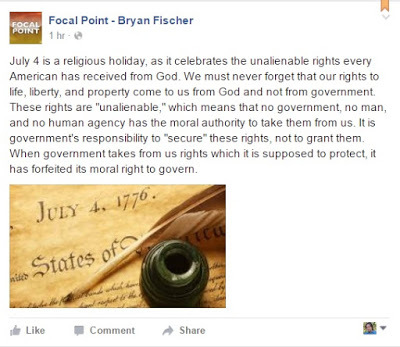
He also said the "homosexual agenda is the greatest threat to religious liberty in our nation's history."
Fischer's overheated and over the top rhetoric is one of the reasons why the American Family Association was also categorized as a hate group by the Southern Poverty Law Center.
The only sensible statement from a public official in Mississippi on this matter came from Attorney General Jim Hood, who said, "The fact is that the churchgoing public was duped into believing that HB1523 protected religious freedoms. Our state leaders attempted to mislead pastors into believing that if this bill were not passed, they would have to preside over gay wedding ceremonies. No court case has ever said a pastor did not have discretion to refuse to marry any couple for any reason. I hate to see politicians continue to prey on people who pray, go to church, follow the law and help their fellow man."
The challenges faced by Mississippi are many and well known. How its opposition to gay marriage and gay rights in general will help the state with these challenges is a complete mystery. HB1523 has actually hurt the state. Many main street groups and chambers of commerce asked the governor not to sign the bill, as did major corporations like Nissan, Toyota, Levis, Tyson Foods and many others. The governor ignored all these folks and signed the bill anyway.
Now that a stay has been issued against it, there is talk of an appeal.
Why, Mississippi? What's up with that?
Published on July 04, 2016 12:12
July 2, 2016
Letter to an unknown son or daughter
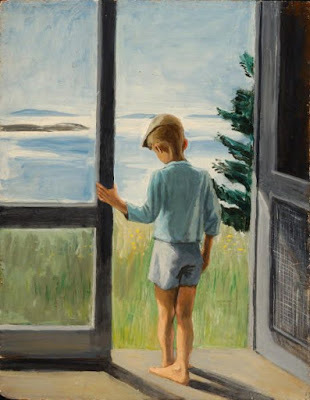
Hi there.
You don't know me yet, but someday you will (or so I hope). Right now you're "in care" - perhaps a foster home or a group home or some other setting which is temporary and not your final destination. Most likely your parents messed up. Drugs. Drinking. Crime. Some form of abuse took place. Or perhaps your parents died or were, for reasons perhaps unknown to you, unable to care for you. Somehow or other, you were let down, and you wound up "in care."
You're probably wondering what the future could possibly hold. Must be rather scary. And also lonely.
There's no getting around it: It hurts when your parents let you down. It's like sailing along in the sea of life and suddenly you find yourself thrust into a life raft and left to fend for yourself while the ship that was your family sails off into the sunset without you.
Sucks.
Then a giant cargo ship comes along, plucks you from the cold waters, installs you in some tiny room while folks fill out paperwork and try to figure out what to do with you. You become part of a giant machine, a cog among a gazillion cogs, shuffled here and there as the cold, impersonal machine makes decisions on your ultimate fate. The people tending the machine try to do the best they can, but they face budget shortages, staff shortages, lack resources, money, time, and so you find yourself shuffled about as folks scramble to come up with something more substantial. You may wind up in situations that are not ideal but are the best that can be achieved given the circumstances.
Not very fair, but there it is.
You probably lay in bed at night and stare up at the ceiling and wonder if someone is thinking about you, if somebody wants to be your mom or dad, whether you'll have new brothers and sisters or perhaps be an only child, whether you'll have a new family -- and whether you'll like that family.
Each time the door opens, you probably wonder who will be standing there - and what they want from you. Will it be a mom and a dad? Or maybe just a mom? Or just a dad? Or will it be a social worker saying it's time for you to move on to the next thing - the next foster family, the next group home, the next destination that the giant machine has decided for you.
Perhaps you think no one will ever come for you at all.
And then, one day, out of the blue, the door will open and I'll be standing there.
I should tell you up front that I know all about that giant machine taking care of you because I'm caught up in it too. See, the only way for someone like me to find someone like you is to crawl into the belly of that beast and do battle.
The very first thing the machine did to me was fingerprint me. Then they sent my fingerprints out to see what would happen. Would I show up on any criminal reports? Perhaps the sex offender database? Perhaps on some police report somewhere?
And on it went, one thing after the next. I can' t tell you how many forms I filled out, how many questions I answered, how many background checks I went through. Then I took a bunch of parenting classes and training sessions. Then the machine visited my home several times and had a good look around, wanting to be sure that it would be good enough for someone like you. Did I have running water? A nice bed and a nice room for you? Were the floors clean? Did the toilet flush properly? Did I have fire alarms and fire extinguishers in case there was a fire? Did I have an emergency plan in place in case there was a tornado or some other disaster? Did I understand that a child should never be spanked for any reason? Did I have friends willing to write letters of recommendation on my behalf, willing to verify that I would make a good parent?
They talked to everyone in my life. Even my boss was asked to weigh in.
All of this was done to make sure you would be placed in a safe, good home and that you'd have an adult in your life determined to make sure that nothing bad happened to you ever again. Because the machine knows - and I know, too -- that something bad has happened to you. Someone, somewhere, let you down. Life, circumstances, fate, karma -- somehow or other, you got the short end of the stick. It's the machine's job to pick you up, carry you a while, then drop you off at a place where you can live again, a place that you can call home, in the care of someone, or perhaps several someones, who want to be your family.
So ... on that day, when I'm standing there in your doorway -- when we're looking at each other and sizing each other up and wondering what it all means -- on that day both you and I will step off the machine. The social workers will still visit and there will still be forms to fill out, but when we disembark from the machine and go to the parking lot and get into my vehicle, an entirely new chapter in your life -- and my life -- will unfold.
If it all goes according to plan, it will be a very nice chapter.
I'm writing this letter because I know what it's like to lie in bad at night and wonder if someone is thinking about you. Fact is, when I was your age, someone let me down too, and I have a pretty good idea of how you must feel.
So I wanted you to know that yes, someone is indeed thinking about you, and planning for your future, and waiting for the day they can meet you and start being your mom, or your dad, or your family. Someone has spent a lot of time inside the belly of that beast doing battle, getting ready, buying furniture for your new room, getting everything ready. Someone's been thinking about you every single day.
Before I close this letter, I'll tell you a secret. You might be scared, but that someone thinking about you is probably scared too. Probably scared a lot. You might be wondering if they're going to like you. But they're going to be wondering whether you like them.
You see, they want the best for you. They know some bad things have happened to you, and they don't want you to be hurt anymore. They want you to have a good life, a safe life, a life filled with the love and care that you deserve. Of course, it's easy to talk about such things, but doing it is far more difficult. Takes work. A lot of work. You both have to work at it. You both have to be on board and ready to roll up your sleeves and make it work.
Me, my sleeves are rolled up and I'm ready to give it my all. And what I know is this: If you're willing to do the same, we're going to be a huge success.
Right now, as I write this, I don't know who you are. I don't know if you're a boy or a girl. I don't know your name. I don't know anything about you. Yet I'm thinking about you.
It makes me sad that there are so many kids like you. I wish I could help all of you. I can't. What I can do -- and what I will do, if the machine allows me -- is help one of you.
And I'll tell you another secret: There's a lot of people like me in the belly of that beast.
So ... chin up, okay? Someone's waiting for you. Someone's thinking about you. And, someday soon, someone will be standing there at your door. When that day comes, here's some advice: Give it your all. They say a fool will waste his tomorrows by looking back at yesterdays. Don't look back. Give it your all.
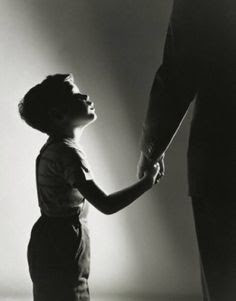
Nick Wilgus is the best-selling author of SHAKING THE SUGAR TREE and many other novels.
Published on July 02, 2016 09:40
April 30, 2016
I want to hold your hand
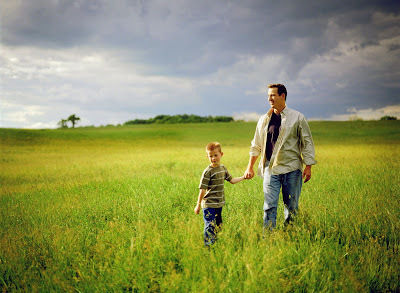
As an openly gay man in his early fifties who wants to adopt, I've certainly received my share of looks and pointed questions, the most frequent of which is why.
Why?
I often receive a tilting of the head and a raising of the eyebrows when this plaintive plea is issued.
Why?
From the moment I attended my first parenting class last summer, that question has followed me. And while I initially felt the need for some fantastic, utterly compelling reason, I've since come to understand it's a rather simple matter.
I want to love and be loved.
Nothing more. Nothing less.
I'm already the proud father of a son who is now in his twenties and has just finished college. I know all about the joys and pains of fatherhood. I know what I'm getting into.
The matter was clarified for me last year when a friend announced he and his wife were expecting their third child. This news was greeted by the usual oohs and aahs, the normal excitement, the happy expectation of the imminent arrival of another member of the tribe.
My friend was not asked why. He already has two kids, yet he was not asked to justify the addition of a third. He was not asked to provide some compelling reason about wanting to help a needy child, or how so many children sit in foster care from Boston to San Diego waiting for a forever home. He did not face a barrage of social workers with endless forms to fill out and endlessly embarrassing personal questions to answer.
And he most certainly did not face a bevy of friends and acquaintances with tilted heads and raised eyebrows, all of them saying, Why?
Why does anyone have a child? We all know it's a difficult, time-consuming, sometimes frustrating, irritating and certainly very expensive endeavor. Why do we do it?
Why?
Do we feel the need to strengthen the tribe, add to our numbers? Are we looking for companionship, friendship, love? Are we looking for someone who will remember us long after we're gone? To help us in our old age?
Why?
Folks seem to be suggesting that gay men (and lesbians and other non-traditional sorts of folks) shouldn't want to have kids, that perhaps we're too busy with our "gay lifestyles" to be bothered, that we're not cut out for it, that it's not our territory, that we don't know what we're doing.
Seriously?
I hate to be the one to tell you, but queer folks are multi-dimensional people and what we do between the sheets is a very small part of who we are. We have jobs, careers, friends, interests, hobbies, passions, and yes, some of us want to be parents too. We pay bills and taxes. We obey the laws. We are brothers and sisters, sons and daughters. We go to church and book clubs and some of us even go camping.
Many of us lead full, rich lives and are not adverse to the idea of sharing our homes and hearts with a child or two left behind.
If I had to provide a compelling reason, I might point out that I know what it's like when your parents let you down, when you wander through life alone, when you're ostracized, shunned, shamed for being different, when you're disconnected and face all of life's challenges and hurdles alone with no one in your corner. I know what it's like to have parents who have failed and how painful it is to come to that realization and to forgive them for not being able to do things they simply could not do.
These are all things children in foster care deal with, and will continue to deal with long into their adult lives - and I believe I am well-equipped to help them climb this mountain and emerge on the other side. I want to hold their hands and help them become strong, emotionally and spiritually healthy adults.
I remember how, as a child, I used to daydream that someone would come along and save me. Someone would walk through the door and we'd discover there had been some mix-up at my birth and I'd been sent to the wrong family. This person would waltz in, would be the parent I had always wanted, would take me away, would give me a normal, happy life far away from fights and alcohol and ashtrays and trailer parks. I'd be in a home where I was wanted and loved, where I wouldn't be yelled or humiliated or beaten.
I know there are kids today, perhaps kids in the state of Mississippi where I live, who are -- as you read this -- sitting somewhere and dreaming the same dream. Sitting and waiting and hoping that someone will come along ...

I've got compelling reasons, if you need them, but I believe the simplest answer is the best.
I want to love and be loved. Like everyone else. More than that, I want to help with homework and attend baseball games and wipe noses and kiss boo boos and watch them grow up.
I am fully aware that I may not succeed. After all, I live in a state whose governor just signed a bill making it legal to discriminate against gay people. Among other things, SB 1523 specifically gives those involved in the areas of foster care and adoption the right to turn away gay applicants. So I realize my chances, never very good to start with, are probably just about zero at this point.
While Mississippi does have its hateful legislation, it also has something else: It's home to the most gay couples raising children in America.
Whatever the outcome, I will at least be able to look at myself in the mirror and say I tried.
Published on April 30, 2016 09:13
January 21, 2016
My first suicide
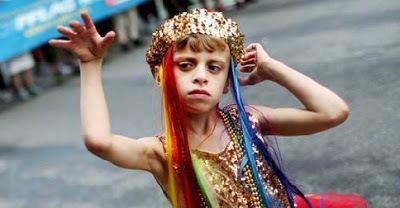
Like too many other gay kids, I too once thought suicide was the only way out.
I came of age during the late 1970s and early 1980s when we had a president (Reagan) who couldn't bring himself to say the word AIDS despite the alarming number of gay men dying from it. Jerry Falwell and the Moral Majority were gaining steam and a tiny group from the Westboro Baptist Church began to protest at funerals for victims of AIDS by carrying signs that read GOD HATES FAGS and FAGS DIE/GOD LAUGHS.
I had learned what every child learns: It's okay to be yourself just as long as you're like everybody else.
The child of a broken home, I faced the terrors of being gay alone with no support from family or church. It was a confusing, frightening time, and one evening, when I could stand it no longer, I decided it was time to end it.
I was a cutter. That was another word one didn't hear at the time. It was a strange, mysterious thing to cut yourself with razor blades, to watch yourself bleed. Surely no sane person would do such a thing and the idea that one engaged in cutting as a way to take control of one's own body was quite unheard of.
I dabbled in suicide too. Half-hearted attempts.
But that night ...
I had purchased three boxes of sleeping pills. I popped them two and three at a time until I could swallow no more. I managed about 40 pills in all. Then I lay down on my back on the bed and waited.
After ten or fifteen minutes, I realized that if I was going to save myself, I was going to have to get up, call someone, go the emergency room, do something.
But I did not. I had made my decision and was sticking with it. So I lay there, thinking I would simply fall asleep and that would be it. I was not afraid of going to hell. My life was already hell. What difference would it make?
Why did I want to die?
It wasn't just being gay, although that was part of it, especially the intense shaming I received at the hands of the Catholics. I felt ashamed of myself, humiliated and certainly not loved by God. I felt like a moral failure.
But it wasn't just the whole problem of being gay. It was the broken home, being let down by parents, the childhood abuse, the violence, the neglect, the agony of trying to parent yourself and survive when you have no idea what's going on inside you and all around you.
But a funny thing happened on the way to my doom. I had apparently watched too many television movies. I didn't realize that over the counter sleeping pills could not kill you. You needed prescription-strength stuff for that. Barbiturates, they were called.
Not only did I not fall asleep, I could not sleep at all. I was completely wide awake. I felt a weird sensation in my chest. Later, I would discover that by lying there for so long on my back, the pills had gotten stuck and burned a hole in my esophagus. I still have trouble eating spicy foods.
At some point, I got up and played records. The next morning I went to work and never told a soul about it.
In fact, I've never told anyone about that little escapade ever.
Until now.
I'm glad I failed at both that attempt and several subsequent attempts. My life would have much different if I hadn't.
Which brings me to the point of this post, which is tell you a little bit about Bilal Abu, the young Muslim boy in BILAL'S BREAD. Bilal's story of intense homophobia at the hands of fundamentalist brother isn't my story. But then again, it is. Bilal is a cutter. The victim of sexual abuse, he somehow cottoned on to the fact that by punishing his body, he could exert control over it, control that was denied by his abuser. By hurting himself, he could make the decision about when the pain would end.
Bilal also faces the problem of coming to terms with his sexuality. A quiet boy, he finds it hard to speak up for himself, to make himself heard. And how can he? The voices in his household are so loud and so strong, he is easily overpowered. (And what was a young gay man like myself to do when confronted with Rev. Fred Phelps and his protesters screaming that GOD HATES FAGS? What do you do when your church thinks you're a pervert who's not much different from someone who likes to have sex with dead bodies? How do you make yourself heard when no one is listening?)
Eventually Bilal finds his voice. It happens when his school participates in a poetry hoe-down sponsored by the school district. He decides to get up and read a poem.
I want to share that poem with you. It was written a long time ago, but it still rings true.
If you've ever thought suicide was the way out, I want to assure you it's not. What needs to die is "homophobia" and bigotry and the lies we tell ourselves about who we are and what God thinks of us.
The truth will set you free, but sometimes you will pay dearly. But it's worth it.
MY FIRST SUICIDEmy first suicidewas on an evening in July
and pills were the plan
they were sticky in my hand
as I, in twos and threes
gulped them down with Lipton tea
but death was not to be
not yet
not for me
then came razor blades
as further murder plans were made
to end my misery
to bleed my way to peace
and I, despite my best
created only one more mess
and death was not to be
not yet
not for me
these empty places, empty spaces
all these holes that must be filled
how much better, how much faster
if this body I had killed
instead it’s endless hours
endless days and endless haze
as bit by bit and piece by piece
I make my way to my release
and I, despite my best
long to die and take my rest
but death is not to be
not yet
no, not for me
you see:
you got the ball, I got the chain
you got the sun, I got the rain
you live in light, I live in pain
for me to die would be to gain
I know such words ought not be spoken
just as true things rarely are
and what’s the use of too much hoping
when each day brings yet more scars?
yet hope I do, I can’t resist
I long to know much more than this
I long to know some happiness
a chance is all I’m asking
a chance to do my best
a chance to love somebody
to put my heart to rest
you tell me I’m not normal
you tell me that I’m queer
you tell me that the folks like me
aren’t really wanted here
you tell me it’s a crime
if I should feel the way I feel
you say my love is shameful
there’s no way it could be real
but then, how would you know
when these shoes, you’ve never worn
but still that doesn’t stop you
oh how easy falls the scorn
the hatred and rejection
how they wound and how I bleed
cause love is not to be
it’s not allowed for folks like me
well, where then should I go
back to pills and razor blades?
and what then should I do
to take this pain away?
and would it make you happy
if you put me in the ground
if you silenced me forever
with that silence so profound?
Still I, despite despair
offer up this fervent prayer
that death is not to be
not yet
not for me
the kind that comes from trying
to be what I can’t be
you see:
my first suicide
was on an evening in July
and pills were the plan
they were sticky in my hand
and only now when I look back
do I understand
why life was meant to be
why the truth can set you freeso let truth be spoken here and now for all to hear
let the truth be said
I am queer
Yes, I am queer
And let this be a suicide
a death to lies and my deceit
a death to furtive hiding
a death to dishonesty
cause life is meant to be
both for you ...
but also for me
Published on January 21, 2016 17:32
January 15, 2016
So you don't like gay marriage?

So you don't like gay marriage.You have religious objections. You think marriage should only be between a man and a woman. You're not alone. The Anglicans recently got mad at the Episcopalians over this.
My question to you is this: If not gay marriage, then what?
Please consider this question. Please go deeply into it. Consider the ramifications. Consider what it is you say you want. If it's important enough to you to disown a family member who might be gay, or to vote for legislation to take away rights from millions of people, then please spend a few minutes considering what it is you are asking for - what it means, how it will affect real lives, the impact it will have on the society you live in.
If gay people are not to get married, then what are they to do?
Older gays and lesbians can tell you exactly what they will do because we've already done it.
Most will escape to the "gay ghetto," which revolves around gay bars, drugs, alcohol, casual sex, bath houses, addictions, pornography, prostitution. They will run off to larger cities where these gay ghettos exist. They will abandon your churches and communities. They will become distant, withdrawn, isolated.
On the other hand, gay marriage provides an alternative. It allows a young man or a young woman to find a partner of their own choosing, with whom they can be happy. They can be open about their commitment to their partner. They can make their wedding promises in full view of family, friends, the community (who will then help them to keep those promises). They can buy a house, settle down, live normal lives.
If my child was gay, I know which option I would prefer. Religion doesn't enter it. Whether I agreed with his choice or not, I would want him close at hand. I would want to meet his partner. I would want to be involved in their lives. I would want them to feel welcomed in my church. I would want society to give them the same chances and opportunities that all couples enjoy.
I would not want my child running off to the big city, slinking around in the shadows in the dead of night, wasting his life on drugs and alcohol. I would not want him marginalized. I would not want him to have relationship troubles and not feel he could ask me for advice.
Opponents of gay marriage need to consider the realities on the ground and the effect their religious beliefs have on others. If gay marriage is not an option, they need to provide an alternative because, like it or not, gay people are going to get together and have relationships.
The tide is turning. Even the First Baptist Church in Memphis has gotten on board. Gay marriage has become the law of the land, religious objections notwithstanding, precisely because it allow gays and lesbians to come out of the shadows and live more normal, fuller lives. In the grand scheme of things, this can only lead to stronger families and communities.
Published on January 15, 2016 18:18
January 3, 2016
It's a dad thing
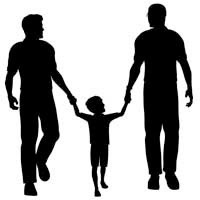
My latest novel is called GO TELL IT ON THE MOUNTAINS from Dreamspinner Press and will be hitting the shelves later this month or early February. It's the third book in the Sugar Tree series, which follows the antics of Wiley Cantrell, a mouthy gay single dad just trying to make his way in the world best he can.
I've been asked if the books are autobiographical and whether the character of Wiley is based on me. The short answer to both questions is no. I'm not a Southerner though I do live in Tupelo, Mississippi now. I've never been mistaken for someone who was sexy, or opinionated, or who had a sarcastic remark for any occasion. While I'm a father, I'm not the father of a special needs child.
But the long answer? Perhaps.
As I worked on the edits for GO TELL IT ON THE MOUNTAINS, I realized I was writing about myself.
MOUNTAINS is about Wiley and his partner Jackson adopting two children. This happens six years down the road after they lose Wiley's son Noah, who was never expected to live but held on for thirteen years. His loss, while not completely unexpected, was a painful chapter in their lives. Wiley eventually decides he wants to adopt. This is a way to move on, to start living again, to jump back into the business of living and loving and keeping the faith. But it's not easy.
I'll let readers decide whether Wiley and Jackson are making the right decision or biting off more than they can chew.
When I began the Sugar Tree series a few years ago, adopting a child was very much on my mind. In fact, I've flirted with the idea of adoption for many years but there never seemed to be a right time. Last year, however, I began to attend the necessary parenting classes and begin the application process, which I'm currently in the middle of.
As an openly gay single man living in Tupelo, Mississippi, the most religious state in the Union, my chances are not good. Still, the heart wants what it wants. And irony of sitting around and writing about an imaginary gay single dad raising a child has not escaped me. I've been writing about what I wanted to do myself.
At one point during GO TELL IT ON THE MOUNTAINS, Jackson says, "When you said you wanted a dozen children, I thought you were exaggerating." Wiley, in typical fashion, replies, "I was. I'll settle for six or seven." Wiley then reminds Jackson that he's the sort of guy who "just needs to love my babies," a fact of life he made perfectly clear when they first met.
Wiley is a family man. He loves kids. He loves his family. He's not much for drinking or carousing or hanging out at gay bars (which is good, since there aren't any in Tupelo). He'd much rather play Frisbee in the park with his son than hit up the latest drag show. When loneliness and horniness get the better of him, he will jump in the sack with the first thing that comes along (something for which he has been roundly chastised by many readers). At the end of the day, though, Wiley is not about casual sex or a promiscuous lifestyle. He wants family. Commitment. Permanency. He wants kids and a husband to dote over. He wants to build a future and live a normal, happy life. What he needs are other people to get out of the way and let him do it.
He finds himself deeply in love with a flawed man, but it's okay because Wiley is flawed too, and he knows it.
While I am nothing like Wiley in appearance or manner or station in life, I am very much like him in many other ways. In what he values, what he wants, what he copes with, what he tries to overcome, even the mistakes he makes.
Like Wiley, there has been trauma in my past that I needed to deal with ... and almost couldn't. Wiley learned to forgive and move on. I have too. Wiley's latest trauma, the loss of his son, has him desperately trying to find the meaning behind it. He wonders why God would take his only child. He's mad. He's angry. He's hurting. He's a little self-destructive.
He eventually concludes that God sent Noah into his life to teach him how to deal with messed up kids. Let's face it: Adorable as he was, Noah was a hot mess, a child born addicted to meth, a child haunted by demons and disabilities and birth defects, a child who was never expected to live.
But Wiley found a way to deal with it, a way to reach him, a way to give him at least a few years of happiness.
Wiley believes adopting a messed up child that no one else wants will somehow give meaning to Noah's life. These is a purely arbitrary decision Wiley has made, based on his own internal beliefs and ideas. We could argue whether it makes sense or whether he's just fooling himself, but that's not the point. Wiley looks at the situation and assigns his own meaning to it, and that's all that matters. Wiley says, "I need to know Noah's life wasn't just some cosmic joke." He needs to know there was some point to it, some higher purpose, some deeper meaning.
We all do the same. We look at terrible things that happen and try to find the reason, try to assign some meaning that will let us sleep at night.
Myself, I look at my childhood, at what people did to me, at what my parents did, and sometimes I am gripped by the feeling that it was all pointless and stupid and cruel. "A cosmic joke." I ask myself: Why do we allow children to grow up in such homes, with such people? Why doesn't someone do something? If God really does love us so much, why does he allow our most vulnerable to endure such agony? Why is he silent? Why doesn't he intervene when children are being hurt?
This business of assigning meaning is something I've struggled with my whole life.
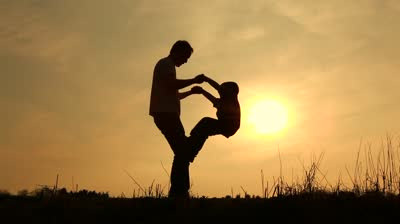
Which takes us back to adoption.
When I first began attending parenting classes and filling out all the endless forms, I was asked over and over: Why do you want to adopt? I thought I had to have some compelling and fantastically altruistic reason. So I gave long answers on how I had an unhappy childhood, how I could help these kids, how I understood what it was like to know you were not wanted by your own parents, how I knew the pain of having parents who let you down and let you fall through the cracks because they were too busy with their own drama to notice. I talked about how being a dad was the best thing I ever did in my colorful life, how I loved being a dad and wanted to do it again. I repeated the story about the man who complained to God about all the horrible things that go on in the world. The man asked, "God, why don't you do something?" And God replied, "Why don't you do something?"
Those are all perfectly good reasons, of course.
The real reason is much simpler: I want to love and be loved. Part of it is altruistic. Another part is perfectly selfish. I don't want to be eighty years old and dripping into my adult diapers and not have at least one person visit me in the nursing home. I'm sorry if that's selfish, but it's the truth. I want to love and be loved. Like everyone else, I want family, people I can count on, people who can count on me. I want to go home and cook dinner and help with homework and kiss the boos boos and attend the football games and help a child grow up.
It's not complicated.
Wiley has a similar thing going on. He struggles to assign meaning, but at the end of the day, it's plain to see: He just wants to love and be loved. He wants to fuss over and love on his babies. That's just how he is. It satisfies some need he has deep down inside. To be useful. To be included. To be part of life. To live and love, to give and receive, to find joy and bliss in others. To be part of the human family.
The child I'm hoping to adopt is a special needs boy who is now ten years old and who has been with his current foster family for two years. They don't have enough money to adopt him. I may never have a chance to be his father. I've resigned myself to that. Still. I needed to be able to look at myself in the mirror and say I tried.
I hope readers enjoy GO TELL IT ON THE MOUNTAINS. I put a lot of heart and soul into that book and I hope it shows. And while some are going to be mad at me over the loss of Noah, I think, when you reach the end of the book, you'll see that life does indeed go on. And it goes on because it has to.
As always, thanks for reading.
Published on January 03, 2016 11:00
November 3, 2015
An Unholy Hatred
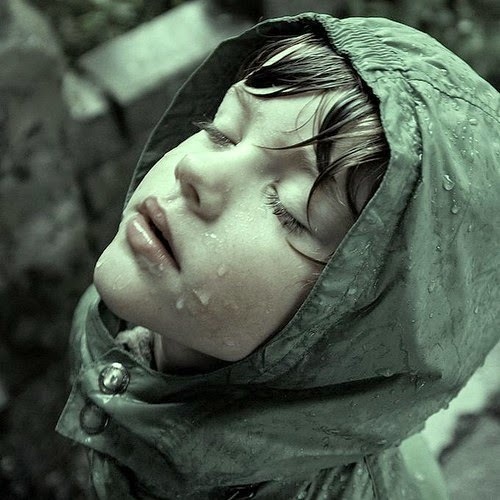
I was about twelve years old when I looked up the word "homosexuality" in the dictionary and was given a 1970s definition: Homosexuality, I learned that sad day, was a "sexual perversion" akin to "pedophilia, bestiality and necrophilia, which see."
I looked up those big words--and was horrified. After the feelings of horror and disgust washed off, I was left feeling deeply ashamed.
No child wants to be a pervert, not even a twelve year old boy in love with Barry Manilow.
What I learned that day was reinforced by the overly religious, right-wing environment I grew up in. When the adults sat around at their John Birch Society meetings and talked about "pinko commie bastards" I eventually realized they were talking about me, a revelation that only added to my shame. Just because I had weird, inexplicable crushes on other boys didn't mean I wanted to be a communist (God forbid!), or that I hated my country, or that I was the scum of the earth.
Or did it?
My response to this shame was to become extremely religious, to prove, by a life of prayer and piety, that I was a good person. I can't count the number of rosaries I said, the candles I lit, the prayers I offered, the endless hours I spent begging God to "forgive" me, to "heal" me, to "take this cross away."
It didn't work, and it didn't last.
I look back on a life lived in shame, and, ironically, I feel ashamed I spent so many years feeling ashamed when there was nothing wrong with me, when I had done nothing wrong, and had nothing to feel ashamed about.
My life is bound up with shame. The shame of being something I didn't want or ask to be. The shame of being different in a world that is merciless toward those who don't measure up. The shame of being slender, soft spoken, a sissy, effeminate, faggy, girly, limp wristed, a "lady boy," a pervert, what my church calls "intrinsically disordered."
Shame is a very damaging emotion and a deadly dynamic.
Shame leads to silence; silence leads to isolation; isolation leads to depression and, for too many LGBT folks, thoughts of suicide--or worse.
I look back on this life of shame and I wonder: what purpose did it serve?
I am well aware that my life of shame was not an accident. The shaming I experienced was put into place by other people for a reason. What was that reason? What was the point of shaming children like me? Why do we continue to do it? Whose needs are being met by this shaming? Where's the pay off? Who benefits?
The answer is obvious: by and large, it is the churches and religious folk who benefit. And it is the churches and religious people who, by and large, perpetuate this shaming of LGBT individuals.
There are two immediate benefits that come to mind:
1) It serves the needs of heterosexism, which is the attitude that heterosexuality is "normal" and that everyone should be heterosexual. Since heterosexuality is the most common form of sexuality, it is thought to be "normal," or what God intends and wants of us, and any other form of sexuality is a perversion to be discouraged if not eradicated.
2) It is a useful form of social control. The churches, indeed all religions, use shame as a form of social control, the "just ordering of society." While this "just ordering" is supposed to be Biblically based, it is not always so, and shame is used by the dominant group in society as a way to impose its values, whether those values are based on the Bible or not.
There is a great deal that could be said about these two benefits, and a great many arguments could be made for or against them, but that is not my intention. I'm trying to get at the narrative, the structure behind the shaming I experienced (and continue to experience) as an LGBT individual. I'm trying to answer questions like this: Why do people like Pat Robertson and Bryan Fischer continue, on a sometimes daily basis, to shame gay people? Why does the Catholic Church refer to its LGBT sons and daughters as "intrinsically disordered?" Why do so many evangelicals threaten that the wrath of God will fall upon us now that gay marriage has been legalized? What is the point of this? What is the purpose? Whose needs are being met by this constant "culture war"?
Yet there are other questions that are equally important. What has been the effect of this shaming on LGBT people? Has it helped them? Has it brought them closer to God? Has it helped them to live dignified, meaningful lives? Has it contributed to our understanding of the human person? Are we better off because of this relentless culture war? Are families made better and stronger by shaming their gay and lesbian sons and daughters?
Or has all of this fuss and bother, which has caused enormous hurt to so many people, been nothing more than an exercise in bigotry, the bigotry behind the idea that we should all be heterosexual, that it's not okay to be different, that God wants us all to wear our pants the same way?
Or has it been a sort of mass hysteria, a sort of heterosexual panic, that there could exist, among us, people who are profoundly different in their sexuality?
Or have LGBT people been nothing more than scapegoats, the "village idiot," the one group of people in a community that it's safe to pick on and feel superior to as a way to boost one's self-esteem? This is a very traditional role, mind you. You will see it on every play ground at every school. There is always that one child who is picked on, excluded, ridiculed, who simply cannot measure up. By picking on that one child, we feel superior. We also feel part of the "in group." It heightens our sense that we're okay, we're acceptable, we're "good enough." So ... is that the purpose gay people serve? To give society a convenient punching bag?
The shaming I've experienced has hurt me in deep, profound ways that I will never be able to explain to those who have not experienced it.
I spent many years feeling as though my soul had been murdered, that I was a dead person inside a living body, that I was not a good person and could never be a good person because there was something about me that was fundamentally wrong--if not bad, if not evil, if not perverted.
Shame led me into about a dozen serious attempts at suicide, a couple of which really ought to have been fatal.
Shame has left me unable to believe that an entity like "God" could actually love me, or care one way or the other about what happens to people like me.
Shame has made relationships difficult. It's hard to love someone else when you can't love yourself.
Shame has affected me in so many ways for so many years that I will never truly be free of it. It will always lie like a shadow on the past and the future, coloring my choices, poisoning my mind against itself.
I am working my way out of shame.
When I turned fifty a couple of years ago, I decided it was time to come out of the closet-completely and for good. It was a tentative, hesitant step, but much good has come from it.
I continue to process my own shame by trying to understand it, by talking about it, by challenging it, and taking the risk of doing new things and developing new attitudes. It's a lot of work, but it's worthwhile.
What I have come to learn from my experience with shame is that it is a structure. A man-made structure. Someone put it there because it serves their needs. It didn't just happen. It's no accident. Like racism, and all the other -isms, it's serves a purpose. Someone, somewhere, benefits.
I am left with many questions, but the most overriding question for me is this: If you're the one benefiting from the shaming of LGBT people, shouldn't you take responsibility for the harm you've caused, harm that is sometimes so extreme that victims take their own lives? Are you not responsible for your behavior? If your church participates in the shaming of gay people, are you not complicit in the harm this causes? Can you, in good conscience, look the other way and pretend this unholy hatred has nothing to do with you?
Someday churches will have to come to terms with the harm they've caused.
Someday churches will have to recognize their gay and lesbians sons and daughters do not deserve the contempt heaped upon them, that while our mating habits may be slightly different, we are good people, decent people, kind people.
Someday churches will have to understand that you cannot harm others without harming yourself. You cannot demean others without demeaning yourself. You cannot murder the souls of innocent people without murdering your own.
If there is such a thing as Judgment Day, I suspect a lot of believers are in for a hell of a surprise.
"As you have done unto the least of these, you have done unto me" - Jesus either meant these words, or he did not. And if gay people are not the "least of these," then who is?
Published on November 03, 2015 18:56
July 27, 2015
A brave new world
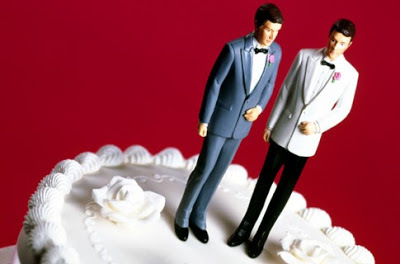
When the Supreme Court handed down its decision on Marriage Equality on June 26, I was stunned into a strange sort of silence. I wandered through the print shop where I work--we were in the thick of things with the normal Friday morning rush--and I soon found my way outside to the alley, where I had myself a discreet cry.
For those of us of a certain age, the victory was stunning.
I keep using that word--stunning--but it's the right word.
Standing there by myself, in the alley, I felt overwhelmed and … stunned.
Just stunned.
Having grown up in the Seventies in a highly religious environment, being gay was considered so shameful one did not talk about it, much less admit to it. About the worst insult one could hurl at another boy was "faggot." There was quite literally nothing worse.
I knew from an early age that I was one of those faggots. Why, I did not know. Deny it, pray about it, beg God to change me, try to manufacture some sort of interest in girls, curse the gods--I did all that and more, to no avail. My faggotness was wrapped tightly around me like a boa constrictor, never once letting me breathe easy or free or experience sexuality in anything but a tumultuous, desperately unhappy fashion.
Kids like me didn't go to high school proms. We faded into the background, got by, got through, disappeared to some big city or other where there was relative safety in anonymity. Too many of us to count wound up on the streets, on drugs, in jails or morgues.
Years ago, when the push began for Marriage Equality (I am compelled to capitalize it), I felt ambivalent. To my mind, there were more important matters to address. Having been one of those gay kids who sought refuge on the streets, having sold my flesh to survive as so many of those kids do and continue to do, I found it hard to sympathize with older gay men and women who wanted to get married (of all things). It was hard to see the big picture while scraping by on the questionable kindness of strangers.
When the Defense of Marriage Act was struck down a few years ago, the writing was on the wall. Yet I could not bring myself to believe that gay marriage would ever become the law of the land. Perhaps in a few progressive, forward-thinking states, but certainly not in a state like Mississippi. I was not shy about expressing my opinion that I would be deader than Britney Spears' career before gay marriage ever became a fact of life for everyone in these United States.
Not once in my entire life did I expect to marry a same sex partner, to settle down, to buy a house, to make a family, to have a "normal" life.
Not once.
Not ever.
That's something to ponder: So many folks like me never expected to share the same rights and privileges that most take completely for granted. A little pink house and a white picket fence with a couple of kids in the backyard -- those were meant for others. Never once in my entire life did I ever think such things might be possible for me.
So …
When I read about the decision that Friday morning, I went outside and cried. I said nothing to my coworkers. How could they possibly understand what it meant to me, what I had been through over the course of my lifetime?
I still don't know what to think about the decision. I'm waiting for some court or other to overturn the ruling. I'm waiting for our state legislators to do an end-run around the matter and somehow legislate this new right of mine away. I'm waiting for the governor to sign a magical decree that will make gay marriage go away, at least in the state of Mississippi.
I'm waiting for … well, I don't know what, exactly.
But at least I can breathe a little easier now.
I take great consolation in the idea that marriage will now be a genuine option for younger gay folks. I hope I'm one of the last generations of gay kids who had to escape to the streets, who cheapened themselves for a meal or a place to sleep. I hope today's gay kids can dream about a prince or a princess charming, a little pink house, a white picket fence. I hope they can add to their families by fostering or adopting.
I hope this means that gay kids will find a place at the table of life, that we, as a society, will have learned that throwing away such kids is not the answer. Including them,. loving them, nurturing them, letting them marry, letting them make families of their own--I hope this is what the future holds.
I will never know what my life would have been like had marriage been an option. And I hope I'm one of the last to ponder such a question.
Published on July 27, 2015 17:24
May 18, 2015
Sleeping with the enemy
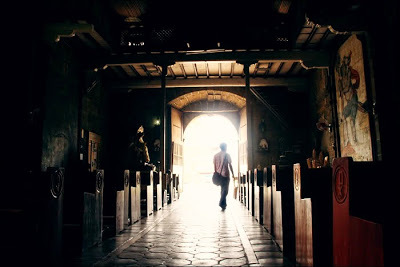
Lately, I've been thinking about leaving the church I've belonged to since I was a teenager, the church where I became a religious brother (until I was asked to leave when I admitted to being gay), the church whose rituals, whose smells and bells, have been the one constant over the course of an often difficult life.
It's not that I want to. It just feels too much like sleeping with the enemy. Each time I drop a donation in the collection plate, I feel like I'm supporting an organization that treats me abusively, that does not value me the way it does its straight members.
Just today, I stumbled across a story from late 2014 about Cardinal Raymond Burke, who advised parents not to invite gay couples to family gatherings when children are around.
Burke said:
‘If homosexual relationships are intrinsically disordered, which indeed they are … then what would it mean to grandchildren to have present at a family gathering a family member who is living [in] a disordered relationship with another person?
‘If it were another kind of relationship – something that was profoundly disordered and harmful – we wouldn’t expose our children to that relationship, to the direct experience of it.
‘And neither should we do it in the context of a family member who not only suffers from same-sex attraction, but who has chosen to live out that attraction, to act upon it, committing acts which are always and everywhere wrong, evil.’Burke has put his finger on the pulse of my problem: Many members of my church feel that "practicing homosexuals" are committing acts that are "always and everywhere wrong, evil."
Yet he has nothing to say about young couples "living together in sin" (once upon a time this was known as fornication and is mentioned in the Bible rather frequently), or couples who have been divorced and remarried. He does not warn parents to keep their children away from masturbators and pursuers of pornogtraphy. No, his scorn, his contempt, is reserved only for homosexuals.
He is careful to distinguish between "practicing homosexuals" and those not involved in sexual relationships, but few make this distinction. The effect of his words is to tar all gay folks with the same brush. So when Mom and Dad sit down to plan Christmas dinner, they are advised by the cardinal to make sure to exclude a son or daughter who might be homosexual because ... well, that is the question, isn't it?
Just yesterday there was a story about a Catholic priest who was fired from his ministry at a college in New Jersey for supporting the No H8 Campaign. Is that the message my church wants to send, that a priest who stands shoulder to shoulder with the "least of these" will lose his job?
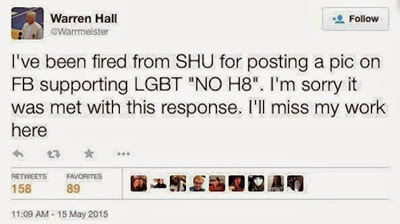
These are not isolated events. Such stories appear every day.
While there are indeed many Catholics in the church who support its LGBT sons and daughters, sadly, there are many in the hierarchy who do not.
Consequently, like many LGBT Catholics, I find myself thinking it's time to leave, that, for my own spiritual well being, I really ought to leave.
I attend Sunday mass at a small church in a rural town. Never once have I been made to feel uncomfortable. No one has ever said a word about my sexuality. I am treated decently and compassionately.
And yet, there is something wrong.
Some folks go to church to have their "batteries" recharged; I come away feeling that mine have been drained. I do not feel lifted up, or spiritually refreshed. Rather, I am left with the curious feeling that the "good news" of the Gospel was meant for others - parents with their kids, older couples, grandfathers and grandmothers, not people like me. Not people who are "intrinsically disordered" as I am. Not people of questionable morals.
Some folks enjoy the social aspect, the meet and greet; I avoid these occasions because I've learned the hard way that there is something about me that is deeply troubling, perhaps even distasteful to some people. So I keep to myself and always feel like I've crashed a party that I wasn't invited to.
I am very much aware that the folks in the pews around me are there to further their own spiritual lives. But what about my spiritual life? Am I not entitled to one? Are the "same-sex attractions" I experience the only thing about me worth noting? Do I not have a soul too? Do I not deserve the spiritual encouragement and uplifting that is offered so freely to parents, to children, to the elderly?
I often wonder what it would be like to have a church family that welcomed me, that was not afraid of me, not afraid to acknowledge me from the pulpit, not afraid to discuss the issues that have such a deep impact on my life. Seems to me it would be an amazing experience -- to go to church and be surrounded by supportive people, to worship together, to contribute my talents and gifts just like anyone else and not always be singled out as someone of questionable morals.
How is it that I am now 51 years old, and have never experienced this?
When St. Peter was given charge of the church, he was told -- three times -- by Jesus to "Feed my sheep." Why is it that I am always left with the feeling that I have not been fed, that the church has nothing to offer me except condemnation and perhaps pity, that it sees nothing about me except a "disordered" sexuality?
An abusive relationship is one in which your needs are not being met, where you're not free to state your needs, where you're not free to speak for fear of the consequences, where you live in fear of what might happen, what might be done to you if you don't measure up, or keep quiet, or toe the party line. In an abusive relationship, one does not feel properly valued and acknowledged. There is no mutual exchange of respect, love and encouragement. One person always lives in fear of the other, lives in the fear of love being withdrawn, or the fear of being punished, the fear of saying the wrong thing or doing the wrong thing, and bringing down the wrath of the abuser on one's head.
How can genuine spiritual work be done in such an atmosphere?
How can the "love of God" be authentically experienced when it comes from the hands of people who are simultaneously abusing you?
A private spirituality is fine and dandy, but a genuine spirituality must be communal, must involve the give and take of others, of a community. Within the framework of community, one discovers who one really is.
The church's LGBT sons and daughters are handicapped in this regard because they are not free to be themselves. To admit to being what they are is to admit to some moral, irresolvable failing. A cloud will always hang over their heads. How can they live authentic lives and experience an authentic spirituality when they are not allowed to be authentic?
Hence, my dilemma.
I don't want to leave the church, but there are times when I think my spiritual sanity and well being depend on it.
The church has been a wonderful place for so many groups of people. It could be a wonderful, uplifting place for gay people too -- but it does not want to be.
How can I continue to support a church that does not support me, that does not feed me, that has no answers for people like me, that condemns me for a reality that I did not choose, that I find just as bewildering as it does?
Where is all this "good news" that the Gospel was supposed to bring -- and when will the church get around to sharing it with its LGBT sons and daughters? Or must we stand on the sidelines and forever remain second class citizens who need to be content with whatever crumbs from the table that might get thrown?
Published on May 18, 2015 19:04



